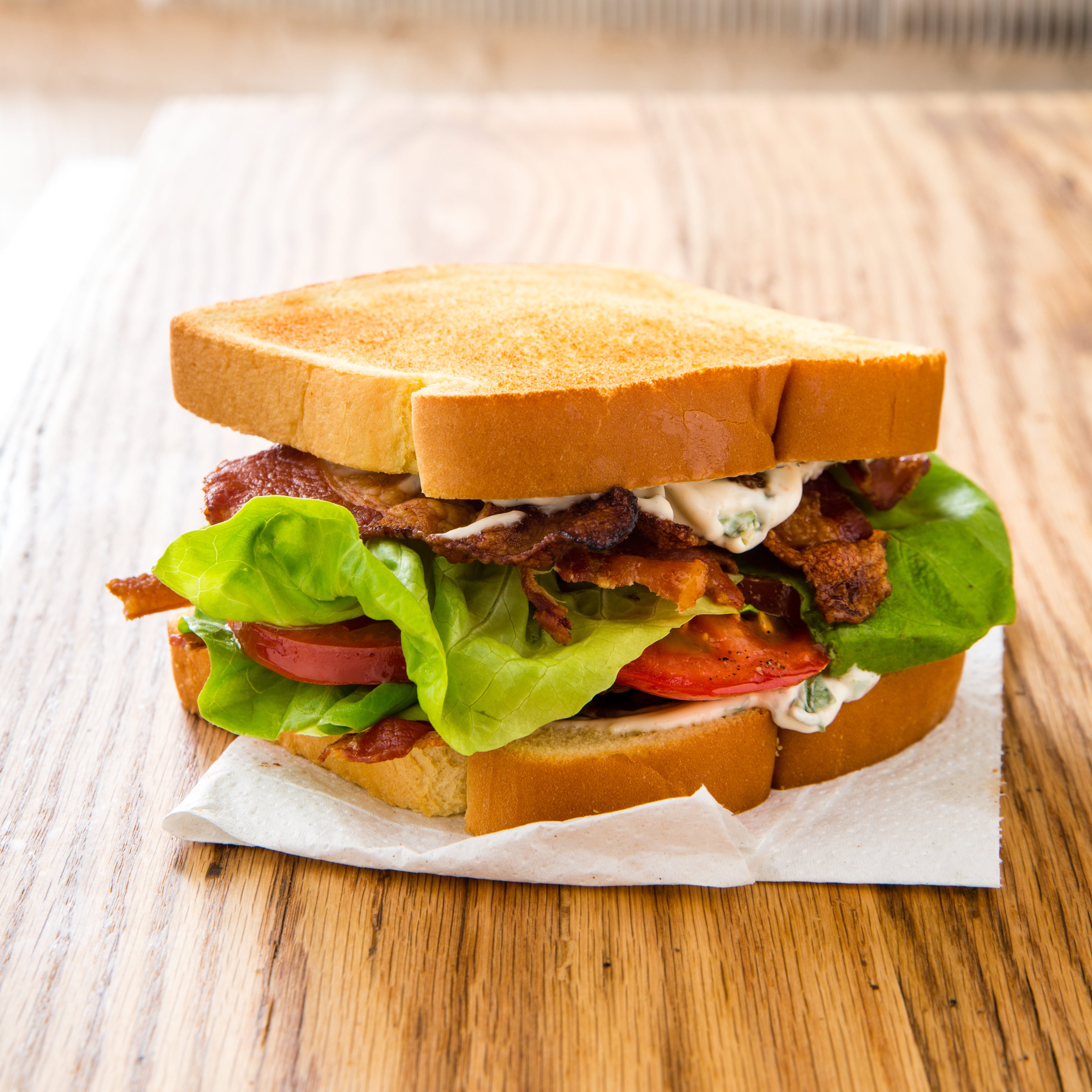What’s your ‘Heston’ experience?
Baking. Measuring isn’t fun. I’d rather wing it.
It’s absurdly easier with a scale. I don’t know why the US standardizes to volume.
Especially for things like butter. Who measures butter in a cup, America?! Unless you just have vats of liquid butter sitting around, in which case I guess scooping up a cup is pretty easy… But even then, weighing it out is better, I think.
fwiw 1 stick of butter = half a cup
We do sticks so it’s not that much of an issue.
But flour? The difference between sifted and packed is huge, it makes a huge structural difference, and people have genuinely written recipes measured pretty far across the range on density.
I came across an American recipe using cups of butter a week or two back, so obviously not everyone got the memo! Sticks isn’t so bad, but I do wish it was all just done by weight. Whenever I encounter recipes using sticks, I still have to convert it because butter is sold in different quantities here.
I agree about flour, it absolutely needs to be done by weight!
I’m saying it’s sold in sticks. The recipe is always cups or tablespoons, but 2 sticks is a cup and tablespoons are marked on the wrapper to just cut off.
Right, but in my non-US country, the recipe is in grams or ounces (ie, by weight) and butter is sold in different-sized sticks to in the US. So, whenever I come across US recipes, I have to do some kind of conversion that involves me looking up how much butter is in a cup, how big a US stick of butter is, or how much a tablespoon of butter weighs!
But how big is a knob of butter!?!?
Cooking is art. Baking is science (chemistry).
What? Baking is super easy. Follow the instructions. That’s all there is to it.
Recipe calls for 250g of sugar? Put in 250g. Not 260 (close enough). Follow the instructions. Works every time.
Seriously, using a scale instead of volumetric measurements is an instant level up in baking.
But that’s hard
I’m used to winging it while cooking
Precision is not in my food preparation repertoire
You can wing it with baking, at least for some types of stuff. Oatmeal raisin cookies don’t really take precision, as an example.
I’m pretty sure making Phyllo pastry by hand is a myth made up by grandmas for ‘Kids today have it easy’ reasons, like walking up hills both ways to school
I used to watch my yiayia make phyllo by hand. She would cover the entire kitchen table in butter, spread out the dough with a wooden dowel that I just remember using as a lightsaber every time she put it down, and spend hours folding and rolling and mopping melted butter across it.
So much butter.
Eventually her arthritis made her give it up and she started using the frozen stuff, but she loved cooking and she was proud to make everything from scratch.
The recipe wasn’t complicated, you just need a large enough clean surface that can be covered in butter and a few hours to spend making it. The result is very similar to frozen dough.
the space requirements is the real killer for phyllo and puff pastries. I dont even know if i could fit a wad of rolled out puff pastry in my fridge.
I unfortunately dont even have the space to roll out pasta or cookies, it makes me a little dead inside
The pizza dough twirling thing.
Fun fact: acrobatics are made with lower hydration dough.
If you want dough with crispy outside and soft inside you’re looking for a 65-70% hydration. Acrobatics with this will rip it apart. To open a higher hydration dough you use this technique: https://youtu.be/xzbW8CZx538
I once worked at a Domino’s. It took making many pizzas to get to that point, but it was really satisfying stretching out the dough once you got there.
The simple things are the hardest to master.
Pie crusts, US style biscuits, scrambled eggs, steak, and sauteed chicken breast. If you cook any of these things exceptionally, I respect your skills.
pie crust
…you mean put cold butter, flour, ice water, and a little seasoning in a food processor and blitz until crumbly? Or are you talking about making puff pastry from scratch?
I can make great macarons and croissants, but for the life of me I struggle with making perfect buiscuts
Honestly, the hardest part of cooking is the prep. Cutting everything perfectly, getting the right ingredients, making the right spice mix, making the sauces, and food that takes multiple days of prep. Cooking is the easy part, prep is the hard part
Edit: deboning anything is fucking rough especially fish, butchering anything is also rough and super easy to fuck up, making all the dough and noodles. I personally think a great chef on those cooking contests are just super good at prep and plating the food of course because it’s pretty in the end.
For me personally, literally all cooking. If it’s more complex than boiling pasta or using an air fryer, I’m useless at it.
And I find it so hard to motivate myself to get better because I often fuck up and have to throw out food when I try something new in the kitchen. Plus I’m usually cooking because I’m actually hungry and want to eat, so that risk factor of knowing I might need to start over and make something else if I screw up isn’t something I want to deal with.
Try stir fry.
Chop veggies, or if you’re lazy get one of those party trays of pre-chopped veggies. Throw in frying pan with oil. Continually taste test for doneness (helps with hunger). Broccoli might need to be steamed (cover the pan for a minute or so until it’s bright green). Then season with whatever. You can buy pre-mixed seasoning.
Do the protein separately. Cube chicken or pork and fry until it’s not raw. Or just toss it on a George Foreman and cube after.
Rice in a rice cooker.
Presto.
Even easier-fajitas : onions and bell peppers cut about even and cooked for a bit in a bit of oil ( even a splash of water works) with a packet of fajita spice mix from the store. Cook a little longer for less crunch). Rotisserie chicken for the meat. Tortillas and cheese slices with rice if you want- boil in a bag is a-ok.
Or try frozen veg + golden brand Japanese curry. Same chicken and rice as above.
Stir fry is easy, but tricky to master the different cooking times. (These dudes might be selling themselves short, but who knows)
Yeah my stopping point is similar. If I fuck up then I have no food and still have to clean
Stir fry is a good way to start. It’s pretty hard to fuck up and pretty easy to clean up.
Exactly! And worse yet, if you fuck up, the cleaning is often more time-consuming
Hollandaise sauce.
Once you crack the code, it is easy peasy – but it’s very non intuitive until then. Either use a double boiler (I don’t recommend this approach, it makes it harder to tell whats going on, reduces your control and makes setup feel like a chorae) … or buy a few dozen eggs, a couple pounds of butter and a dozen lemons and just practice the sequence until it clicks.
The key is to control the temperature carefully, and keep that temperature homogenous and even… that means knowing how warm and cold your ingredients are, and steady whisking.
Two ways to do it:
-
Whisk together eggs, water and lemon juice until the mixture thickens, and then add melted butter slowly (your slowest and most foolproof method)
-
Whisk your eggs to aerate them, set them aside. Melt your butter, remove it from the heat and add your (cold) lemon juice and water. Should be about room temp now. Whisk it together and drizzle in the eggs, whisking constantly. Then put it back on the heat and whisk it steadily till it thickens, which will be quite soon.
The first path is the correct way, in that it minimizes the risk of putting the eggs into a hot pan (and curdling them), but it’s also slower and more involved. Basically, any way that ensures the eggs are about the same temperature as whatever gets mixed into them, and heated up gradually from there, works.
-
The key is heat control. You need the butter barely melted when you mix in the egg yolk and you need to mix everything together before the egg yolk cooks by itself.
That’s it in a nutshell. If I’m in a hurry I melt the butter, whisk the egg, add the cold lemon juice to butter just as it finishes melting and now it’s room temp, pour the egg in and whisk. Uses only one pan, one bowl and the whisk, takes about 90 seconds. Just gotta be paying attention.
Sous vide can make this easier
Sharpening a knife with one of those long sharpening things
That’s because they are not for sharpening, they are for honing the blade.
Right, you get it. I know what honing is, but could you explain for like, all the other losers? Not me, though, I’m down with the kids.
Ha! He doesn’t know what honing means! It’s so obvious, you should know what it means. Can anyone bother to explain it to him? I would, but honestly I don’t have time for that. Too busy right now.
Haha no worries. Think of the edge of a knife as slowly folding on itself when you’re using it, honing is used to straitened the edge and make it “sharp” again. Sharpening is when you remove material to create a new edge on the knife, usually with something abrasive.
After a while a knife is just dull and has no edge to be straitened anymore, at that point honing is useless.
This is exactly how I would have explained it, too. Glad you jumped in there first though.
Thank you, I always assumed those honing steels were actually removing material like a whetstone would, but that makes more sense with it being for just straightening the edge back out
Now do stropping.
My understanding is that It is really similar to honing with the additional purpose of polishing the blade by using a material that is just so slightly abrasive.
I’m open to correction and addition on this as I’m no stropper.
No, that’s about it. Though you do move the knife spine to edge, opposite of sharpening or honing.
the trick with sharpening knives is to do it wrong and wait for a flock of knive enthousiasts to swarm you and sharpen it for you
How dare you be so correct?
There’s your mistake. A steel is not for sharpening. It is for honing - i.e. straightening out a slightly rolled edge. You should do this periodically while or just after each use.
If your knife is dull, a steel is useless. You need to sharpen it on a stone first.
Or just buy new knives
A sharpening steel? https://cdn.cutleryandmore.com/products/large/36.jpg
Yes. The movement and blade placement is beyond me. I grew up in a tackle store and would watch my mom and dad sharpen filet knives super fast and i cannot replicate it
The average kitchen knife is sharpened at a 15-20 degree angle. So, hold your knife perpendicular to the steel. You’re at 90 degrees. Go halfway down, you’re at 45. Go halfway down again, you’re roughly at 22.5 degrees.
This is close enough in my opinion, but you can always angle down a tad more for those last few degrees if you want. You want to be a little bigger than the actual angle it is sharpened at though, since you’re focusing on the edge, not the whole bevel.
When I bought my first fancy knife from a local kitchen supply store, they taped a folded post-it note to the box and showed me how to make one. Fold a piece of paper diagonally, one corner to the opposite corner, to make a 45 degree angle. Then fold it in half again by folding one long side of the triangle to the opposite long side. You’ll now have a 22.5° angle to use as a visual guide to get you close enough.
Damn gonna try this
Not an expert, I use a whetstone with quite a bit of water and aim to “cut the water”: the edge pushes water along the stone if it’s properly (or at least usably) angled. Once I have the angle in, I adjust my grip, or support the backside of the knife with my thumb, or whatever else lets me keep that angle consistent.
Bear in mind the angle might “change” on you as you sharpen a curved blade - or that’s my shitty technique. I try to keep thinking about “the normal” or what’s perpendicular to the edge where it’s touching the stone.
Also, tip courtesy of Ethan Chlebowski on Youtube. You can use a permanent marker and color in the edge of the blade. Dye left on the edge means you’re off and its distance from the… uh… edge of the edge will tell you if you’re too shallow or too steep.
I can usually get my knives sharp enough that I haven’t bothered with the marker trick. It’s clever, though.
Trying to cook a lot pudding in a big steel bowl in middle school. The bowl was a forever casualty.
Noodle stretching
I do that every day
Is it getting longer?
Only thing I’ve run into so far that I still wasn’t happy with after 3 tries is French macarons. They were definitely edible, but still not close enough to the real thing.
I would recommend Adam Ragusea’s method, they may look ugly but they taste great. His video also does a great job of teaching the fundamentals of macarons, which you can apply to making prettier macarons later. I’m a macaron master now!
Hahaha. I guess I might have some unreasonably high expectations of myself. Most of mine tasted okay and looked much better than his. I did 3 batches of batter, and for each batch of batter, I had at least 3 trays of cookies, so I tried different cooking times/temperatures. While some of my issues were more along the lines of appearances (lumpy, browning, cracking), the bigger issue was with cookies being too dry/crumbly or too chewy/tough. It was almost a year ago, so my memory is a bit hazy now, but I might still give it another shot when I have access to a good kitchen again.
Anything that requires a professional grade oven. Your home made pizzas won’t cook the same. Despite them having their own charm
We’ve got a simple little hot air oven, works awesomely for souffle, slow cooking, drying, even warm fermenting, you name it. Plus it’s extremely efficient. No one uses the large one anymore, especially now while my wife and I discover french kitchen en detail ;)
A perfect omelette. Every egg is different, “the perfect pan” is a myth, omelette is simple to learn, extremely hard to master. Never had one.
deleted by creator
Tourné cuts





















